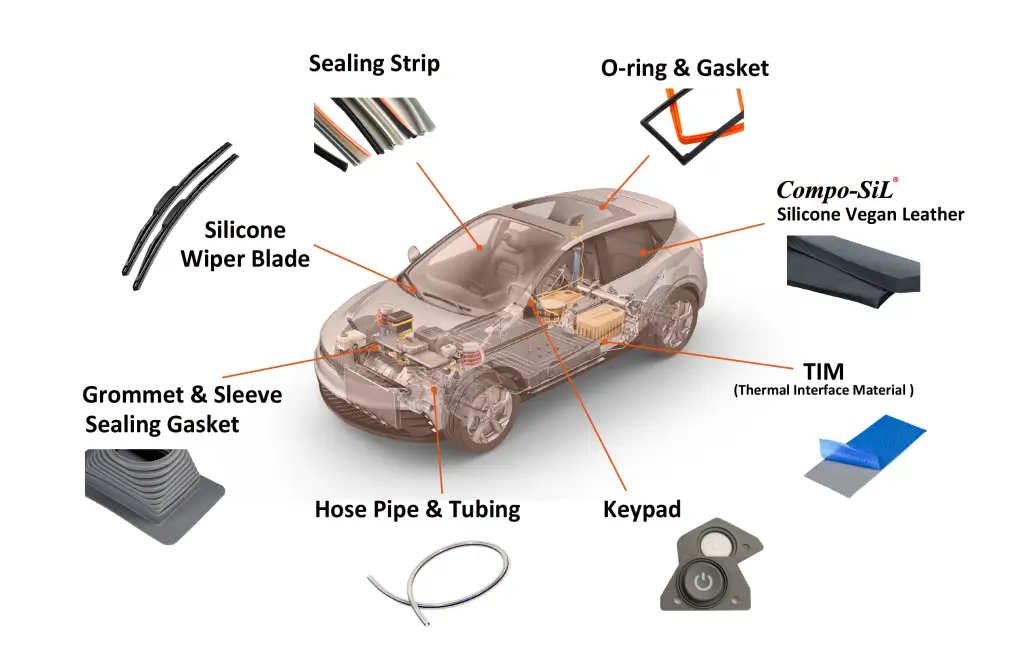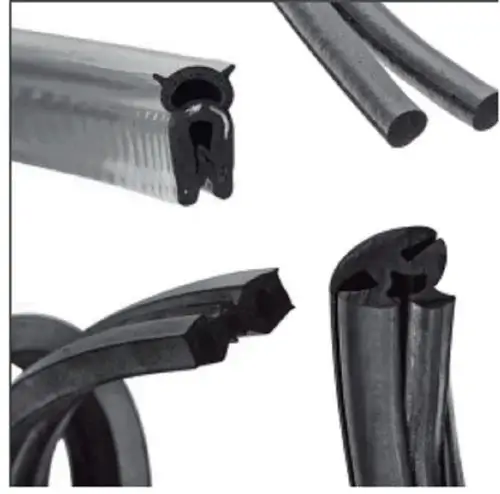
Introduction
Gaskets are essential in the automotive sector as they create airtight and fluid-tight seals among various parts. Silicone and EPDM (Ethylene Propylene Diene Monomer) rubber are among the most frequently utilized materials for making gaskets, thanks to their outstanding performance features. These materials offer longevity, resistance to environmental factors, and excellent sealing properties, making them perfect options for contemporary automobiles.
Properties and Benefits of Silicone Rubber Gaskets
Silicone rubber gaskets are widely utilized in the automotive sector due to their high thermal stability and resistance to harsh environmental conditions. Some key benefits include:
- High Temperature Resistance - Silicone can withstand extreme temperatures ranging from -60°C to 210°C, making it suitable for engine components and exhaust systems.
- Flexibility and Elasticity - Even under prolonged exposure to heat and cold, silicone maintains its flexibility and does not crack or degrade.
- Chemical Resistance - It resists oils, fuels, coolants, and other automotive fluids, preventing leaks and failures.
- Weather Resistance - UV rays, ozone, and environmental factors do not easily degrade silicone, making it ideal for exterior applications.
- Electrical Insulation - Silicone gaskets are also used in electronic components due to their excellent insulating properties.
Applications of Silicone Gaskets in Automobiles
- Engine Seals - Cylinder head gaskets, valve cover gaskets
- Lighting Seals - Headlamp and taillight gaskets
- HVAC Systems - Air conditioning and heating system gaskets
- Electronic Components - Battery enclosures, sensor seals
Properties and Benefits of EPDM Rubber Gaskets
EPDM rubber is another widely used material for automotive gaskets due to its outstanding resistance to weathering, ozone, and chemicals. The key benefits include:
- Excellent Weather Resistance - EPDM is highly resistant to UV radiation, ozone, and extreme weather conditions, making it perfect for outdoor applications.
- Superior Water and Steam Resistance - It is widely used in sealing applications where moisture resistance is critical.
- High Flexibility and Durability - EPDM maintains its elasticity over a wide temperature range, typically from -40°C to 150°C.
- Chemical and Oil Resistance - EPDM provides strong resistance to brake fluids, coolants, and other non-petroleum-based automotive fluids.
- Cost-Effectiveness - Compared to silicone, EPDM is a more economical option while still providing excellent sealing properties.
Applications of EPDM Gaskets in Automobiles
- Door and Window Seals - Prevents water and air leaks in vehicle doors and windows
- Coolant System Seals - Used in radiator hoses, water pumps, and cooling system gaskets
- Brake System Components - EPDM is used in master cylinders and brake fluid reservoirs
- Weather Stripping - Protects against environmental exposure around doors, trunks, and sunroofs

| Property | Silicone Rubber | EPDM Rubber |
| Temperature Range | -60°C to 210°C | -40°C to 150°C |
| Weather Resistance | Excellent | Excellent |
| Chemical Resistance | High (fuels, oils) | Moderate (non-petroleum fluids) |
| Flexibility | Excellent | Good |
| Cost | Higher | More Affordable |
| Applications | High-temperature and critical seals | General-purpose automotive gaskets |

Leave a Reply
Your email address will not be published.